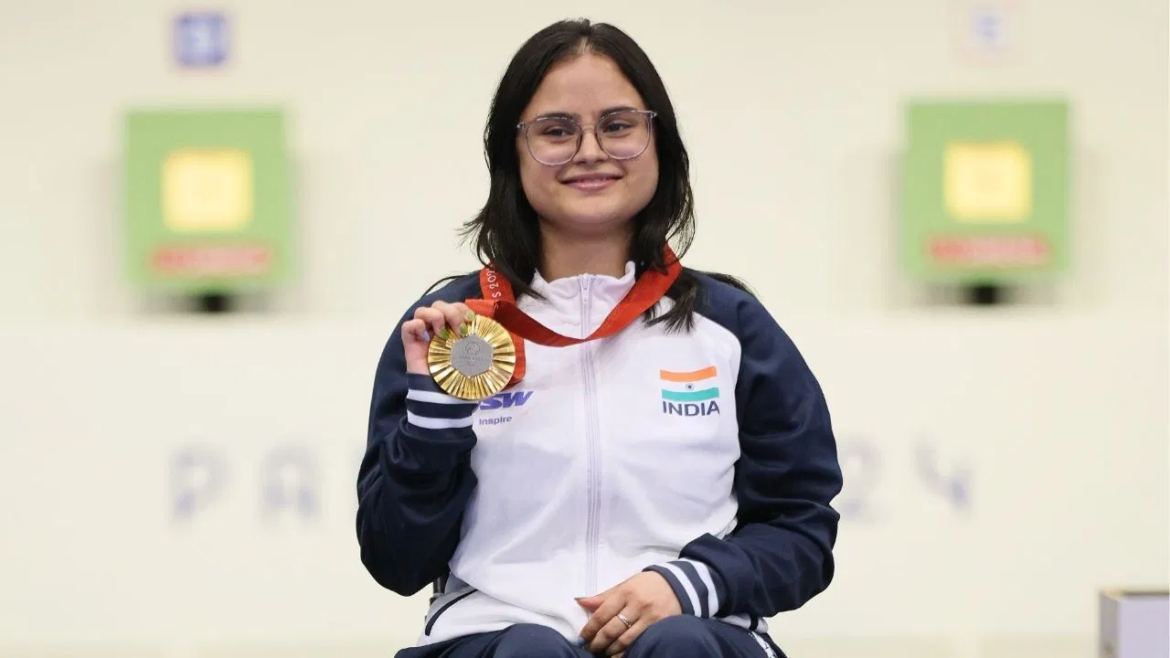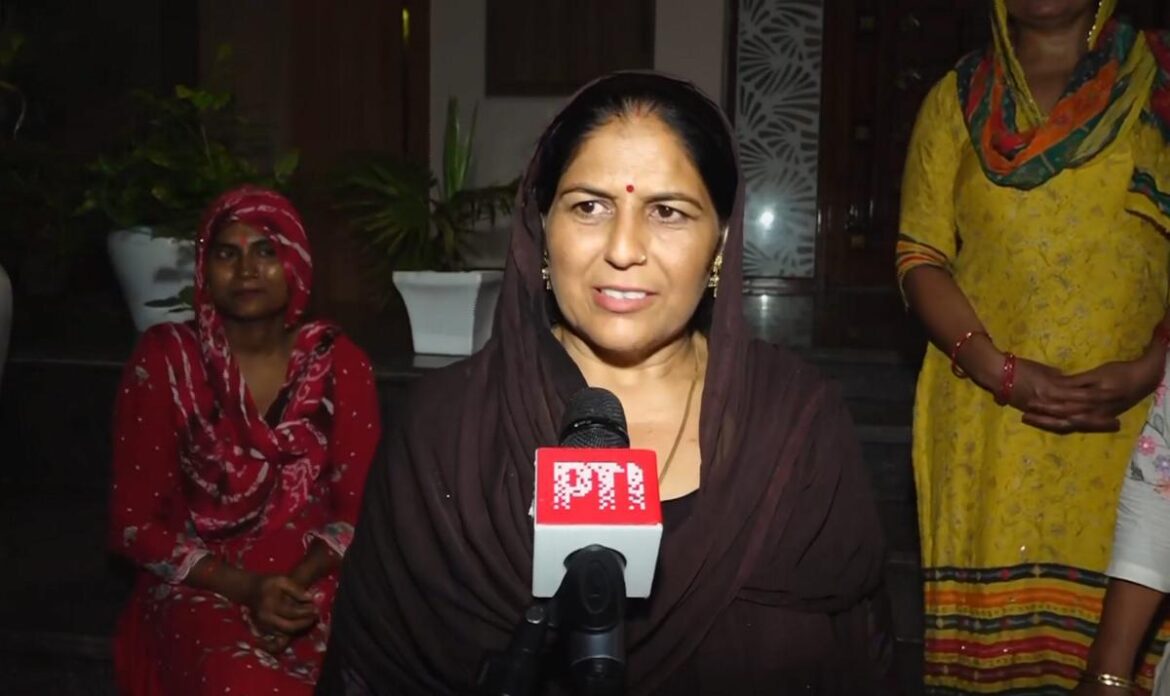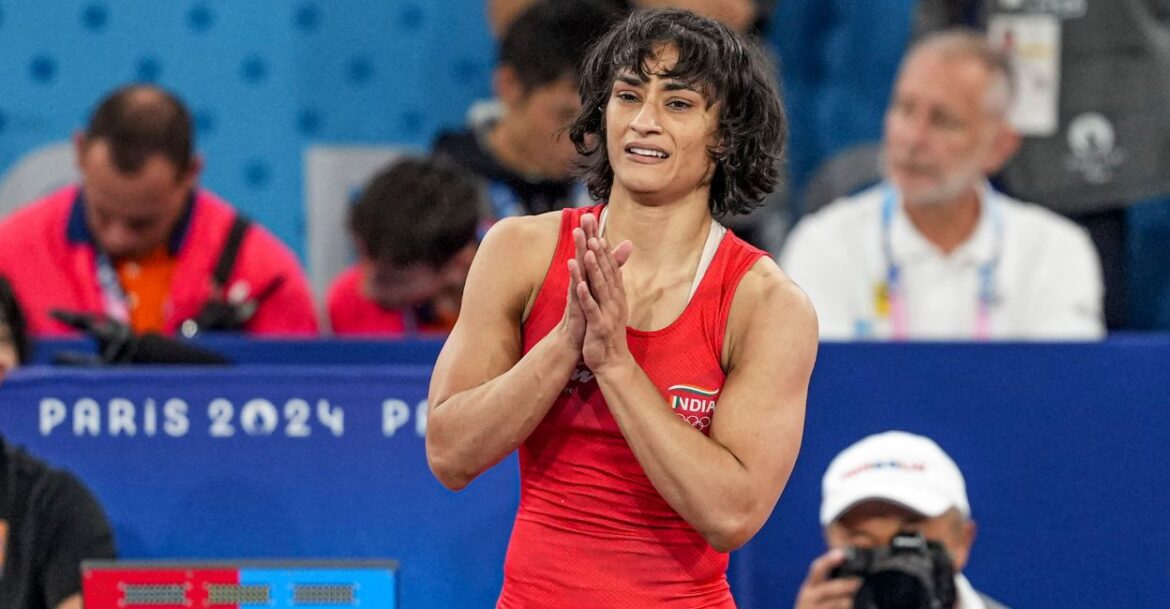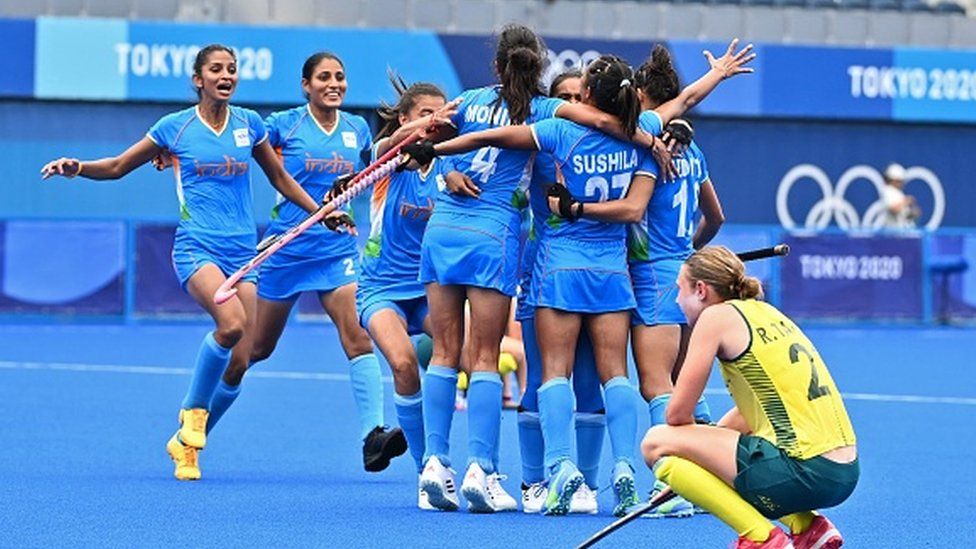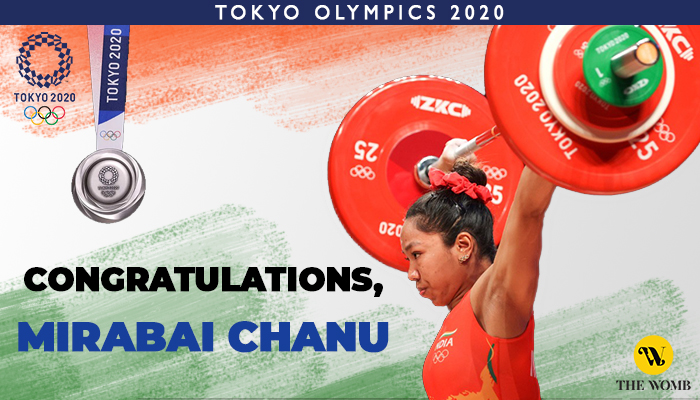By Parika Singh
24 shots, that was all it took to make or break your dreams on a global platform. 24 shots, that was what it took for Indian Paralympic shooter Avani Lekhara to defend her Gold medal from Tokyo 2020 at the Paralympics, 2024, in Paris this week.
Her face shone with triumph as she watched the Indian tri-colour rise above, the national anthem played alongside, dedicated to her victorious country. Lekhara fulfilled the fervent hopes of 1.4 billion people who consoled themselves with silver and bronze in the Olympics this year.
Born in Jaipur in 2001, Avani Lekhara began her shooting career at the age of 14, inspired by Olympic Gold medallist Abhinav Bindra. Her journey was fraught with trials at every step, particularly after the car accident at the age of 12 which resulted in paraplegia. However, Lekhara firmly believed that her disability would not transition into an inability to achieve everything she wanted in life. And her innumerable laurels became a living embodiment of that belief.
Countless athletes with impairment like Avani Lekhara, watched 16 renditions of the Olympics until 1960 in Rome, when the 17th Olympics finally gave them a platform in the form of the Paralympics. As the world watched in awe, with each edition the Paralympics produced exemplary sportspersons, unparalleled in their technique, form, and mastery of their respective sports.
With each seemingly impossible feat, they compelled the world to see them, truly see them- beyond their physical disabilities, to value their accomplishments and place them on the same stature as winners and record setters in the Olympic games. And Lekhara seamlessly joined their ranks this year.
Honoured with the Padma Shri and the Arjuna Award, Lekhara became the first Indian woman to win a Paralympic gold four years ago, as well as the first woman in the country to win two medals in the same Olympics, a Gold, and a Bronze, in 2020. She also set a new record of 249.6 that year. It was only fitting that she broke it herself by winning her second consecutive Gold medal with a new record of 249.7 in the ongoing Paralympics.
After she qualified for the finals in the women’s 10 m air rifle standing (SH1), the eliminations between the 8 shooters were nerve-wracking. Although Lekhara retained her position in the top 2 till the fourth round, she suddenly dropped to the 4th position in the 5th round and was even briefly overtaken by fellow Indian para-athlete, Mona Agarwal, as the bottom shooter kept getting eliminated with each round and only three remained.
However, her years of experience and incomparable skills won in the end when Lekhara shot an incredible 10.6 and 10.7 in the penultimate round, tying for the top spot with Korea’s G Lee Yunri, both scoring 229.3 points. This secured the Bronze medal for India as Mona Agarwal finished 3rd with 228.7 points. The final two shots suddenly became the difference between Silver and the elusive Gold.
Indian spectators nearly encountered crushing disappointment when Avani Lekhara’s 23rd shot stopped at 9.9 while Lee Yunri touched 10.7. But the pressure at this international scale can even envelope the most seasoned athletes. Lee Yunri exemplified it with her 24th shot which restricted itself to 6.8. This is when Lekhara held her nerves and shot a magnificent 10.5, to successfully defend her previously held title.
“I would like to dedicate this to the country and the whole team, their support was so good that I was able to go there and win”, Lekhara declared in an interview post her victory. She claimed to have experienced a new high this time because of her prior championship and conveyed she was happy to share the podium with Agarwal.
https://x.com/IndiaembFrance/status/1829493842078273821
Of course, her Paris journey was far from over. Even before the celebrations subsided, Lekhara began gearing up for further events in the Paralympics 2024. With the upcoming qualifications for women’s 50 m rifle 3 positions (SH1), she has the opportunity to become the only Indian para-athlete to win two Gold medals in the same year. No Indian athlete has achieved this feat in the Olympics either. But with her talent, grit, and determination, the sky is the limit for Avani Lekhara.


